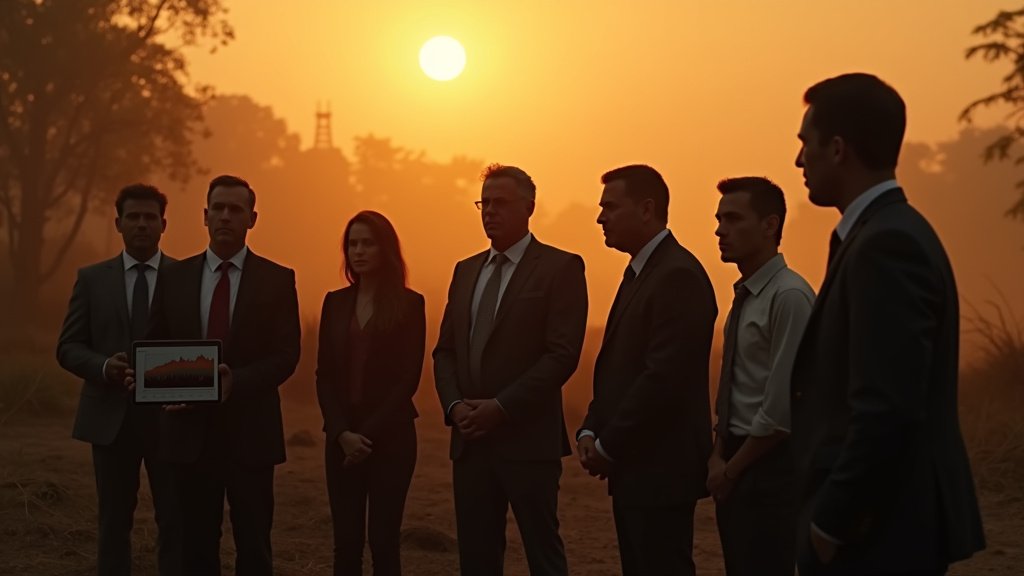The recent United Nations Climate Change Conference (COP30) in Belém, Brazil, aimed to chart a course for global climate action, but for **California COP30 Delegates**, the summit became a stark illustration of the deep-seated contradictions plaguing environmental efforts. While seeking to project California’s leadership in a vacuum left by U.S. federal inaction, the Golden State’s contingent found themselves grappling with a complex reality where ambitious climate rhetoric clashed with concerning on-the-ground practices, highlighting the multifaceted challenges faced by **California COP30 Delegates**.
California’s Climate Stand: A Focus for California COP30 Delegates
Governor Gavin Newsom, leading a significant delegation of California officials and legislators, positioned the state as a primary representative of American climate commitment at COP30. This was particularly notable given the U.S. federal administration’s absence from the main negotiations, a move that has drawn criticism and left many global partners questioning American resolve. Newsom explicitly stated his intention for California to “stand in for the U.S.”, aiming to reinforce alliances and demonstrate continued engagement on climate issues, even as the state’s own complex environmental record faced scrutiny. The delegation included top officials from the California Natural Resources Agency, Department of Food and Agriculture, Air Resources Board, Public Utilities Commission, and the Governor’s Office of Tribal Affairs, all seeking to share California’s experiences with clean energy and job creation, a key mission for the **California COP30 Delegates**.
Echoes of Contradiction in the Amazon for California COP30 Delegates
The summit, held in the heart of the Amazon rainforest—a critical carbon sink and vital ecosystem—was overshadowed by several profound contradictions that generated unease among observers and delegates alike. A significant point of contention was the continued and expanding involvement of the fossil fuel industry in the region. Reports revealed substantial new financing for oil and gas projects in the Amazon, while Brazil itself granted exploratory oil drilling licenses close to sensitive marine areas. This fossil fuel expansion, coupled with Petrobras, the national oil company, beginning drilling operations near Belém shortly before the conference, directly challenged Brazil’s climate narrative and undermined its credibility as a host nation, a reality that the **California COP30 Delegates** could not ignore.
Beyond fossil fuels, infrastructure development for the summit itself raised alarms. Thousands of delegates were housed on diesel-powered cruise ships, and the construction of new roads, including a controversial four-lane highway, required clearing vast tracts of rainforest. Critics labeled these actions as blatant environmental contradictions to Brazil’s environmental protection pledges, arguing that such projects fragment ecosystems, disrupt wildlife, and negatively impact local communities, despite efforts to frame them with terms like ‘sustainable’. The Belém Declaration from a prior Amazon summit in August 2023 had already signaled potential issues regarding Amazon rainforest issues, as it stopped short of agreeing on concrete targets to end deforestation by 2030 or halt fossil fuel expansion, leaving Indigenous leaders worried about implementation, a concern shared by many **California COP30 Delegates**.
California’s Own Climate Complexities: A Challenge for California COP30 Delegates
While California champions itself as a global climate leader, its delegation also faced questions regarding its own California climate policy and their perceived contradictions. Critics pointed out that the state, a major consumer of crude oil from the Amazon region, relies on refineries in areas like Los Angeles that process this oil. Furthermore, Governor Newsom’s approval of a bill allowing thousands of new oil and gas wells in Kern County, even as he advocated for aggressive global climate action, drew criticism from environmental groups who viewed it as a “deep betrayal”. This complex reality highlights the challenge of balancing economic interests with urgent climate imperatives, a tension that resonated throughout the discussions in Belém for the **California COP30 Delegates**.
A Global Summit Under Scrutiny for California COP30 Delegates
The COP process itself came under significant fire, with fears that COP30, like previous climate change conferences, risked becoming a “jamboree of well-paid lobbyists” rather than a forum for genuine progress. The sheer number of fossil fuel lobbyists present at past COPs, and the perceived “lack of urgency” in negotiations, fueled skepticism about the effectiveness of these annual gatherings. Despite the stated goals and the presence of leaders like Newsom, the underlying issues—continuing fossil fuel development, environmental compromises for infrastructure, and a struggle to translate pledges into verifiable action—cast a long shadow over the summit’s potential to deliver the transformative change needed to avert the climate crisis. For the **California COP30 Delegates**, the experience in Belém underscored the difficult, often contradictory, path toward global climate solutions, a path that requires confronting challenges both abroad and at home.





